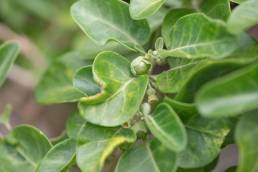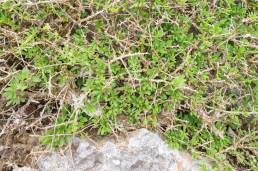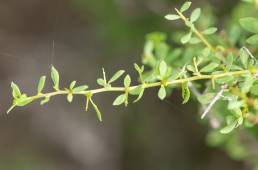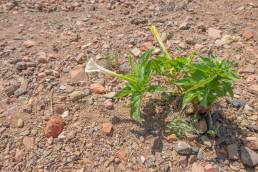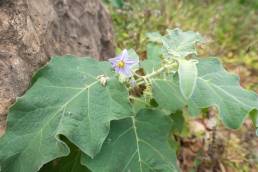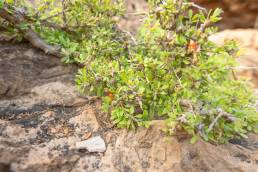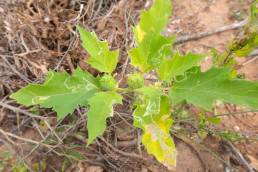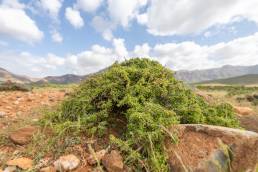25 Aug 2024
Snake Honeythorn (Lycium amoenum)
Elevation: 237 meters.
Native range of snake honeythorn (Lycium amoenum) is Cape Provinces.
20 Jul 2024
Jimsonweed (Datura stramonium)
Elevation: 1578 meters. Native range of jimsonweed (Datura stramonium) is Texas to Central America, Caribbean.……
14 Dec 2023
Withania adunensis
Withania adunensis is less common than the similar Withania riebeckii. The are distinguished by the fruiting calyx in…
6 Feb 2023
Jimsonweed (Datura stramonium)
Jimsonweed (Datura stramonium) is an invasive species, introduced by humans. Native range is Texas to Central America,…
5 Feb 2023
Bitter Tomato (Solanum incanum)
Bitter Tomato (Solanum incanum) is found throughout Socotra, from sea-level to well above 700 meters. Native range is…
4 Feb 2023
Jimsonweed (Datura stramonium)
Jimsonweed (Datura stramonium) is an invasive species, introduced by humans. Native range is Texas to Central America,…
3 Feb 2023
Lycium sokotranum
This heavily pruned individual is the result of never-ending browsing by the goats. Without the goats this species will…




